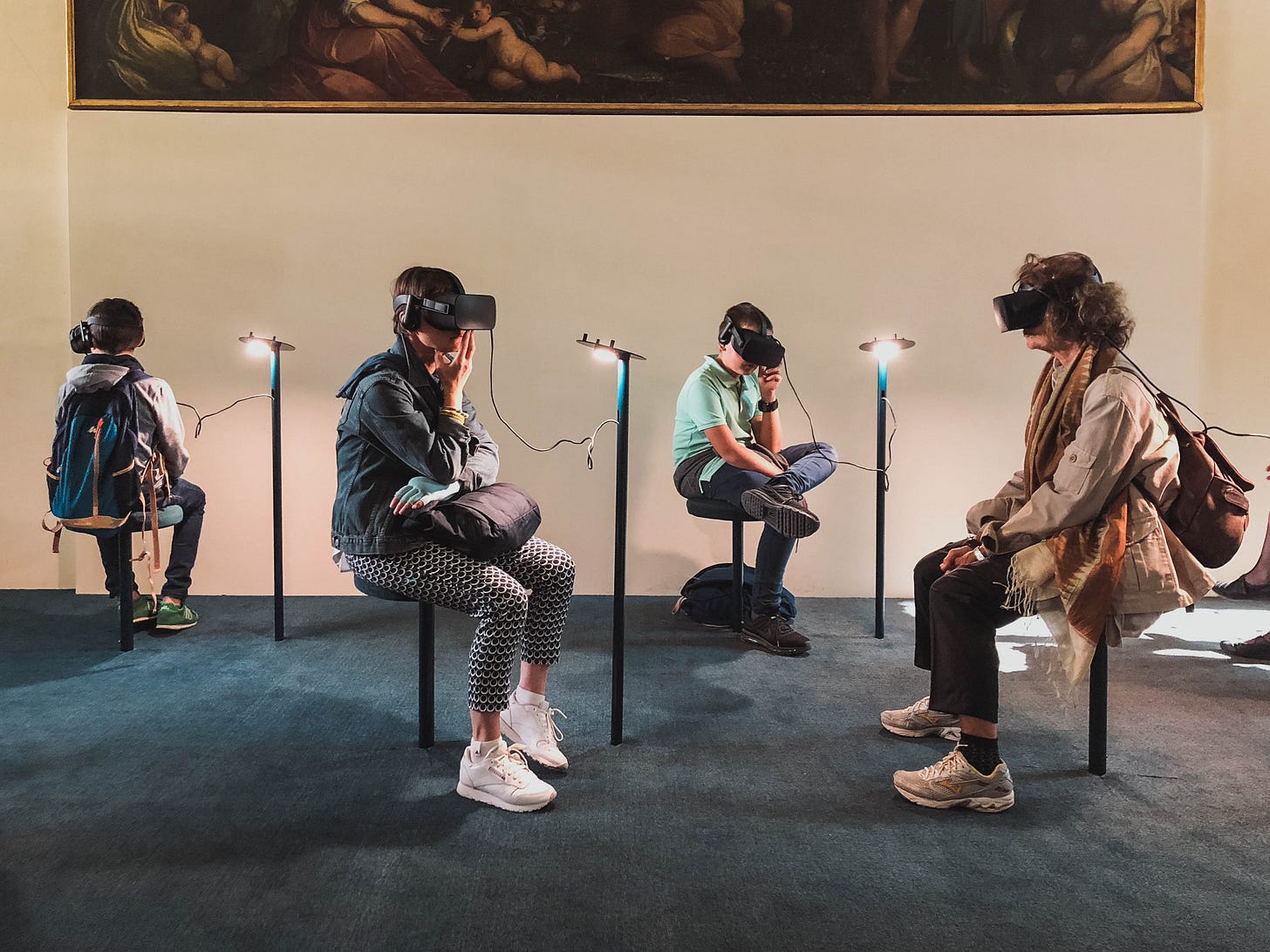Examining the word of the year: 'authentic'
The essence of being authentic is being honest — not just with others but also with ourselves.
You may have seen the headline earlier this week: Merriam-Webster announced its ‘Word of the Year’ for 2023. Like us, you might have dismissed the headline as nonsense. And then, as so often happens, you give in to the irresistible urge to click the link anyway.
If so, you learned that the word with the highest volume of searches this year was ‘authentic.’
In a press release on Monday, Merriam-Webster said:
A high-volume lookup most years, authentic saw a substantial increase in 2023, driven by stories and conversations about AI, celebrity culture, identity, and social media.
Authentic has a number of meanings including “not false or imitation,” a synonym of real and actual; and also “true to one’s own personality, spirit, or character.” Although clearly a desirable quality, authentic is hard to define and subject to debate—two reasons it sends many people to the dictionary.
Certainly philosophers and theologians have pondered the true meaning of reality for millennia, but the media-manufactured, artificial-intelligence-generated reality we live in now is beyond ancient philosophers’ wildest dreams. It’s no wonder that, after ‘authentic’, another word people searched for in the online dictionary was ‘deepfake’.
This blog and our accompanying podcast focus on navigating a society in demise. That demise has been coming for a while. But the advancement of technology has pushed it into hyperdrive — making it harder than ever to tell when something (or someone) is ‘authentic’ and encouraging many people to let go of their already loose grip on reality.
In an astonishing 1978 speech entitled ‘How to build a universe that doesn’t fall apart two days later’, science fiction author Philip K. Dick talked about how fake realities create fake humans which in turn create further fake realities. “Fake humans will generate fake realities and then sell them to other humans, turning them, eventually, into forgeries of themselves. So we wind up with fake humans inventing fake realities and then peddling them to other fake humans,” he said.
Talk about prescient.
This passage from his speech is particularly poignant and relevant to our mission at Collapse Life:
So I ask, in my writing, What is real? Because unceasingly we are bombarded with pseudo-realities manufactured by very sophisticated people using very sophisticated electronic mechanisms. I do not distrust their motives; I distrust their power. They have a lot of it. And it is an astonishing power: that of creating whole universes, universes of the mind. I ought to know. I do the same thing. It is my job to create universes, as the basis of one novel after another. And I have to build them in such a way that they do not fall apart two days later. Or at least that is what my editors hope.
However, I will reveal a secret to you: I like to build universes which do fall apart. I like to see them come unglued, and I like to see how the characters in the novels cope with this problem. I have a secret love of chaos. There should be more of it.
Do not believe — and I am dead serious when I say this — do not assume that order and stability are always good, in a society or in a universe. The old, the ossified, must always give way to new life and the birth of new things. Before the new things can be born the old must perish. This is a dangerous realization, because it tells us that we must eventually part with much of what is familiar to us. And that hurts. But that is part of the script of life. Unless we can psychologically accommodate change, we ourselves begin to die, inwardly.
What I am saying is that objects, customs, habits, and ways of life must perish so that the authentic human being can live. And it is the authentic human being who matters most, the viable, elastic organism which can bounce back, absorb, and deal with the new.
One can only hope the millions of people who searched Merriam-Webster for the meaning of ‘authentic’ are looking for ways to become as genuine as possible. Further, we hope that while searching for their true selves, they understand that the essence of being authentic is being honest — not just with others but also with ourselves.
Manipulating reality begins with manipulating words — we have seen this play out so clearly in recent years. Control the meaning of words and how those words are used and you can start to shape the very way people see the world around them.
The antidote to this is always stating the facts and refusing to give in to the manipulation. Being authentic means not being afraid to call someone out when they are distorting reality. It means knowing what is right and what is wrong and refusing to do what’s wrong, despite the consequences.
As Philip K. Dick said:
This, to me, is the ultimately heroic trait of ordinary people; they say no to the tyrant and they calmly take the consequences of this resistance. Their deeds may be small, and almost always unnoticed, unmarked by history. Their names are not remembered, nor did these authentic humans expect their names to be remembered. I see their authenticity in an odd way: not in their willingness to perform great heroic deeds but in their quiet refusals. In essence, they cannot be compelled to be what they are not.
And so we ask you, dear readers, how will you be authentic today?




A great thought, provoking article. Thank you!